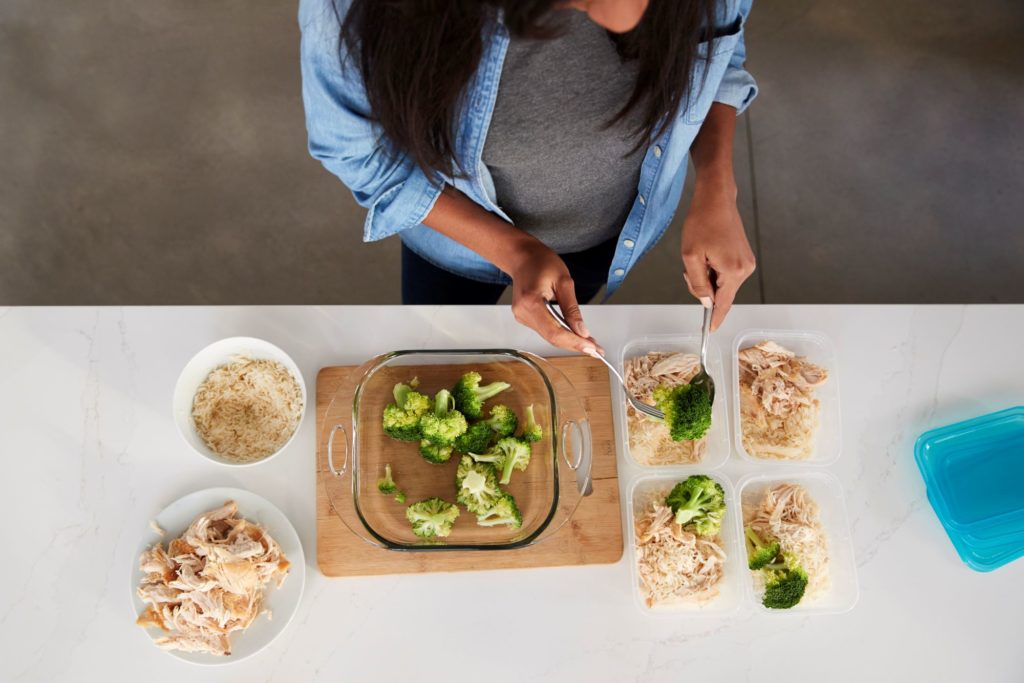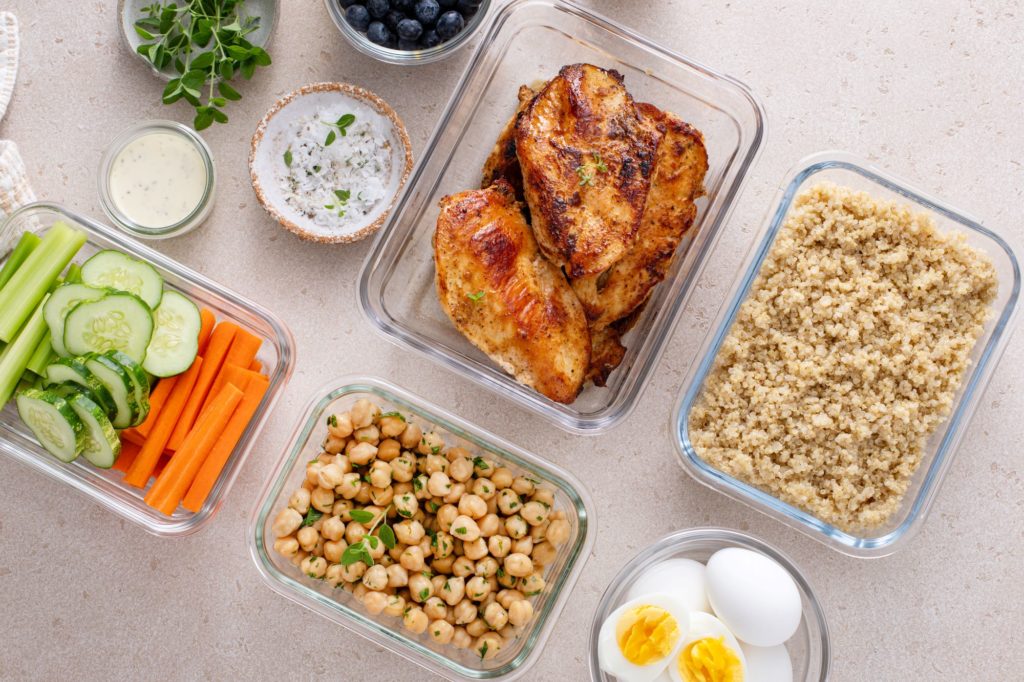Meal prepping can be a game-changer, especially for cooking beginners and busy individuals who want to eat healthy without spending a lot of time in the kitchen every day. Whether you’re new to meal prepping or you’re just looking for ways to streamline your routine, this guide will provide you with practical tips to get started.
What is Meal Prepping?
Meal prepping involves preparing meals or ingredients in advance to make it easier to eat healthy, home-cooked meals during the week. By dedicating a couple of hours once or twice a week to cooking and assembling meals, you can save time, reduce stress, and avoid the temptation of ordering takeout.

Benefits of Meal Prepping
- Saves Time: By preparing meals in advance, you free up time during busy weekdays and weeknights that would otherwise be spent cooking and cleaning up.
- Promotes Healthy Eating: When you intentionally plan and prep your meals with healthy ingredients ahead of time, it’s easier to reach your healthy eating goals.
- Budget-Friendly: Meal prepping helps you save money by reducing food waste and avoiding the cost of eating out.
- Reduces Stress: Knowing that you have healthy meals ready to go can reduce the stress of deciding what to eat after a long day.
Getting Started with Meal Prepping
1. Start Simple
If you’re new to meal prepping, start with just a few meals or ingredients. For example, you might prep lunch for the week or focus on dinners for busy nights only. You might want to prepare the same meal for each night of the week in one batch, or prepare different meals ahead of time to avoid repetitiveness. As you get more comfortable, you can expand to include more meals or snacks.
2. Plan Your Meals
Dedicate some time at the start of your week to plan out your meals. Look for recipes that use similar ingredients to make shopping easier and reduce costs. For example, if you’re making a stir-fry, you can use the same vegetables for a salad or a wrap.
3. Make a Grocery List
Once you’ve planned your meals, make a detailed grocery list. Stick to the list when shopping to avoid impulse buys and keep your budget in check. Buying in bulk can also help save money, especially for items like grains, beans, and certain proteins.
4. Batch Cook
Batch cooking is a great way to prepare multiple servings of a meal at once. Cook large portions of proteins like chicken, turkey, or tofu, and grains like rice or quinoa. Portion them into individual servings that you can easily reheat in the microwave throughout the week. This method is especially useful for people who are busy and need quick, grab-and-go meals.
5. Invest in Quality Containers
Investing in quality, reusable containers is not a necessary part of meal prepping, but it can make the process easier. Look for containers that are microwave-safe, dishwasher-safe, and easy to stack in the fridge. Using glass containers can be a good option as they don’t tend to hold onto odors and are more durable.

Tips for Healthy and Budget-Friendly Meal Prepping
1. Focus on Whole Foods and Ingredients
When planning your meals, focus on whole foods like vegetables, fruits, lean proteins, and whole grains. These ingredients are not only healthy but can be more cost-effective than processed foods.
2. Use Seasonal Ingredients
Buying fruits and vegetables that are in season is a great way to save a bit of money and enjoy fresh, flavorful produce. Visit your local farmers market or check out the seasonal section at your grocery store.
3. Prep Snacks and Sides
In addition to full meals, consider prepping healthy snacks and sides. Chopped veggies, hard-boiled eggs, and yogurt parfaits are easy to prepare and can help you stay on track with your healthy eating goals.
4. Keep It Simple
You don’t need to prepare gourmet meals to eat well. Simple dishes like roasted vegetables, grilled chicken, and quinoa bowls are easy to make and can be customized with different sauces, spices, and toppings.
Ingredient Prepping
Ingredient prepping involves preparing and portioning out individual components of meals, such as proteins, grains, and vegetables, rather than fully assembling dishes in advance. This method offers some more flexibility, letting you to mix and match ingredients throughout the week to create a variety of meals without getting bored.
If you enjoy cooking throughout the week but want to save a little time, ingredient prepping can be a helpful solution. Prepping ingredients in advance—like chopping veggies, grating cheese, and portioning out other ingredients—can make cooking go a lot faster during busy days.
Final Thoughts
For many people, meal prepping can an effective way to eat healthy foods, save time during the week, and stick to a grocery budget. Whether you’re prepping for yourself, you and your partner, or your entire family, these tips will help you streamline the process and enjoy the benefits of home-cooked meals all week long.
